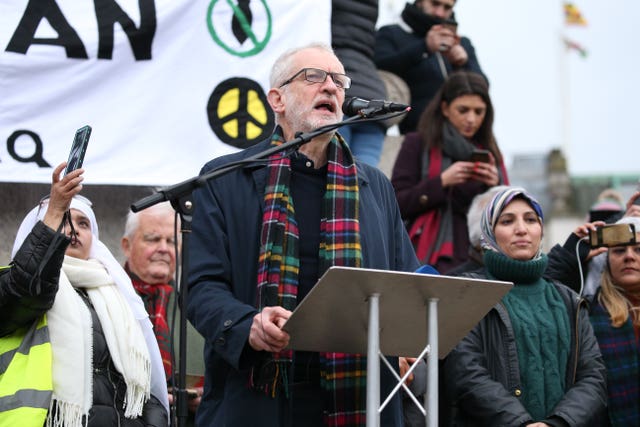
When Jeremy Corbyn signalled the start of the Labour leadership contest with his resignation in December, the challenges facing his successor seemed clear enough.
The party had gone down to its worst general election defeat since 1935 after years of faction fighting, accusations of institutional anti-Semitism and bitter divisions over Brexit.
Seats which had been Labour for generations turned blue as the party’s hitherto impregnable “red wall”, running through the North, the Midlands and Wales, crumbled in the face of the Tories’ advance.
Then the task had been somehow to emerge from the wreckage and rebuild a credible position that would at least given them some sort of fighting chance of wresting power away from the Boris Johnson and the Conservatives at the next election.

Since then, of course, all that has changed with the emergence of the coronavirus from Wuhan in China, causing havoc around the planet, turning upside down all conventional expectations of what might lie ahead.
In this frightening new world the Labour leadership contest, which was already struggling to ignite interest among a weary public, worn down by endless wrangling over Brexit, has been in danger of looking like an irrelevant sideshow.
So the first challenge for the new leader may well be to establish a clear voice on the one overwhelming issue of the day.
At a time of national emergency, he or she will have to decide how far they need to stand with the Government, while at the same time ensuring ministers are properly held to account.
Striking the right tone and balance will be crucial in establishing their credentials with voters as a potential prime minister-in-waiting.
But that does not mean the other issues facing the party will have gone away.
First and foremost will be the need to reconnect with voters in their traditional heartlands who turned to the Conservatives at the election – not least because of Europe.
While Labour activists were overwhelmingly pro-Remain, they found themselves out of step with many working class voters who rallied to Boris Johnson’s call to “get Brexit done”.
At the same time there was profound suspicion of Mr Corbyn’s left wing policy agenda and past links with Irish republicans and organisations like Hamas.
The new leader will have to establish a credible economic policy framework in a world unrecognisable from the one in which the last election was fought.
While Mr Corbyn was criticised for his high-spending programme of mass renationalisation it is a Tory government which has now mounted an unprecedented state intervention to stave off economic collapse.
Where that leaves Labour in the months and years ahead will be a key question for his successor.
Meanwhile the new leader can also expect to come under pressure to show they are dealing with the accusations of anti-Semitism which have dogged the party under Mr Corbyn.
With all three candidates having acknowledged the party had been too slow to act, how the winner deals with the issue is likely to be seen as an early litmus test of the new regime.
Finally, there is the question of whether, after five years of fierce faction fighting, whether they can finally heal the rifts and bring the party together.
It is a formidable to-do list.


Comments: Our rules
We want our comments to be a lively and valuable part of our community - a place where readers can debate and engage with the most important local issues. The ability to comment on our stories is a privilege, not a right, however, and that privilege may be withdrawn if it is abused or misused.
Please report any comments that break our rules.
Read the rules hereLast Updated:
Report this comment Cancel